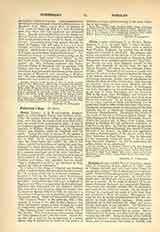

Fitton, JAMES, missionary, b. at Boston, Massachusetts, U.S.A., April 10, 1805; d. there, September 15, 1881. His father, Abraham Fitton, went to Boston from Preston, England; his mother was of Welsh origin and a convert to the Faith. His primary education was received in the schools of his native city, and his classical course was made at Claremont, New Hampshire, at an academy conducted by Virgil Horace Barber, an early New England convert to the Faith. His theology he learned from the lips of Bishop Fenwick, by whom he was ordained priest, December 23, 1827. Thenceforth for nearly a quarter of a century the whole of New England became the theatre of his zealous missionary labors. Carrying a valise containing vestments, chalice, and all necessaries for offering the Holy Sacrifice, his breviary under his arm, he travelled, often on foot, from Eastport and the New Brunswick line on the northeast, to Burlington and Lake Champlain on the northwest; from Boston in the east, to Great Barrington and the Berkshire Hills in the west; from Providence and Newport in the southeast, to Bridgeport and the New York State line in the southwest. In the course of his ministry he was often exposed to insult and hardship, but he considered these as trifles when souls were to be saved. During his missionary career he was pastor of the first Catholic church at Hartford, Connecticut, and at Worcester, Massachusetts. He erected the church of Our Lady of the Isle at Newport, Rhode Island. In 1840, while pastor of the church at Worcester, he purchased the present site of Holy Cross College, and erected a building for the advanced education of Catholic young men. In 1842 he deeded the grounds and building to Bishop Fenwick, who placed it under the care of the Jesuits. In 1855 he was appointed by Bishop Fenwick pastor of the church of the Most Holy Redeemer in East Boston. Here he labored for the remaining twenty-six years of his life, and built four more churches. In 1877 he celebrated the golden jubilee of his priesthood.
ARTHUR T. CONNOLLY

